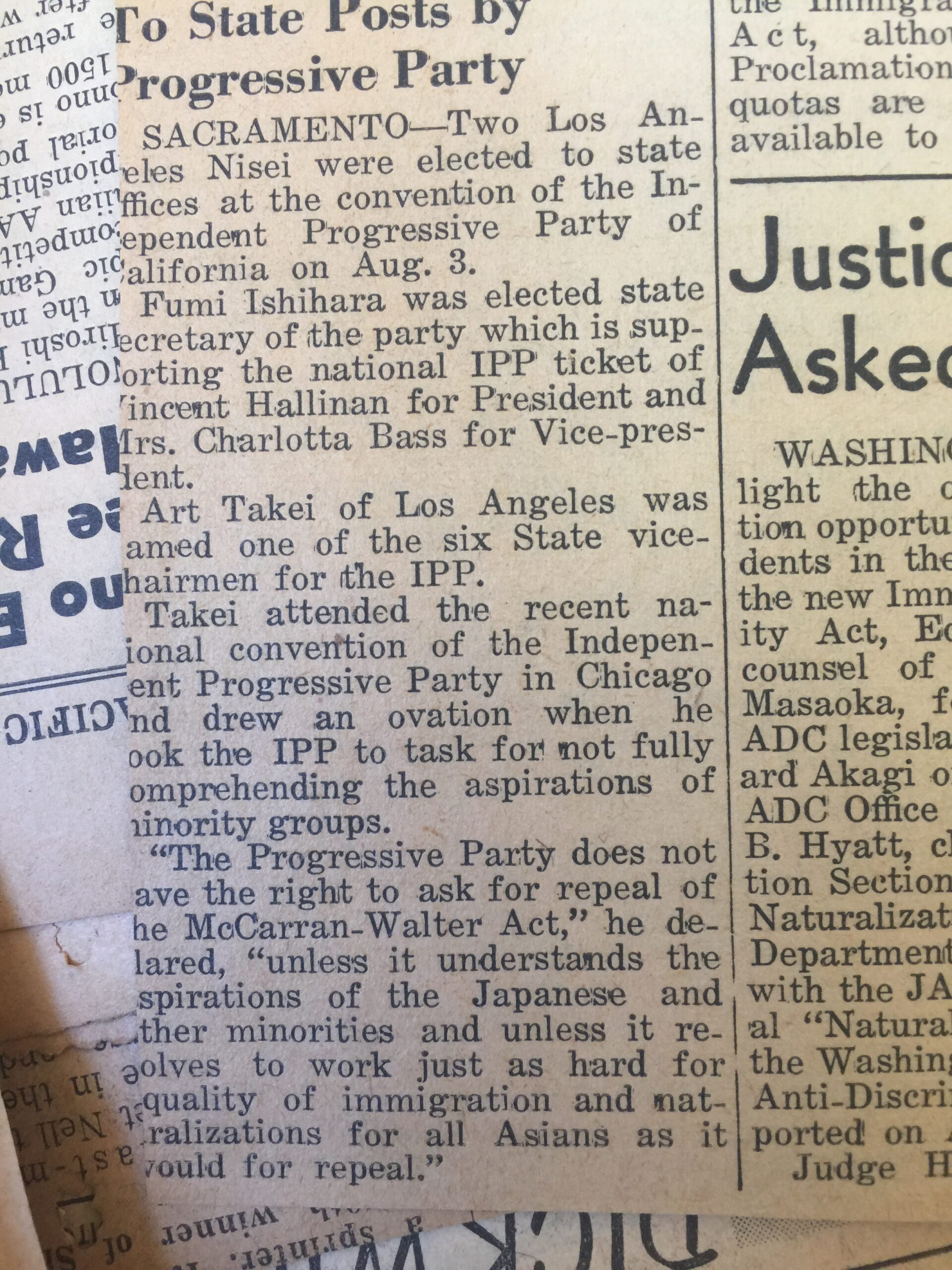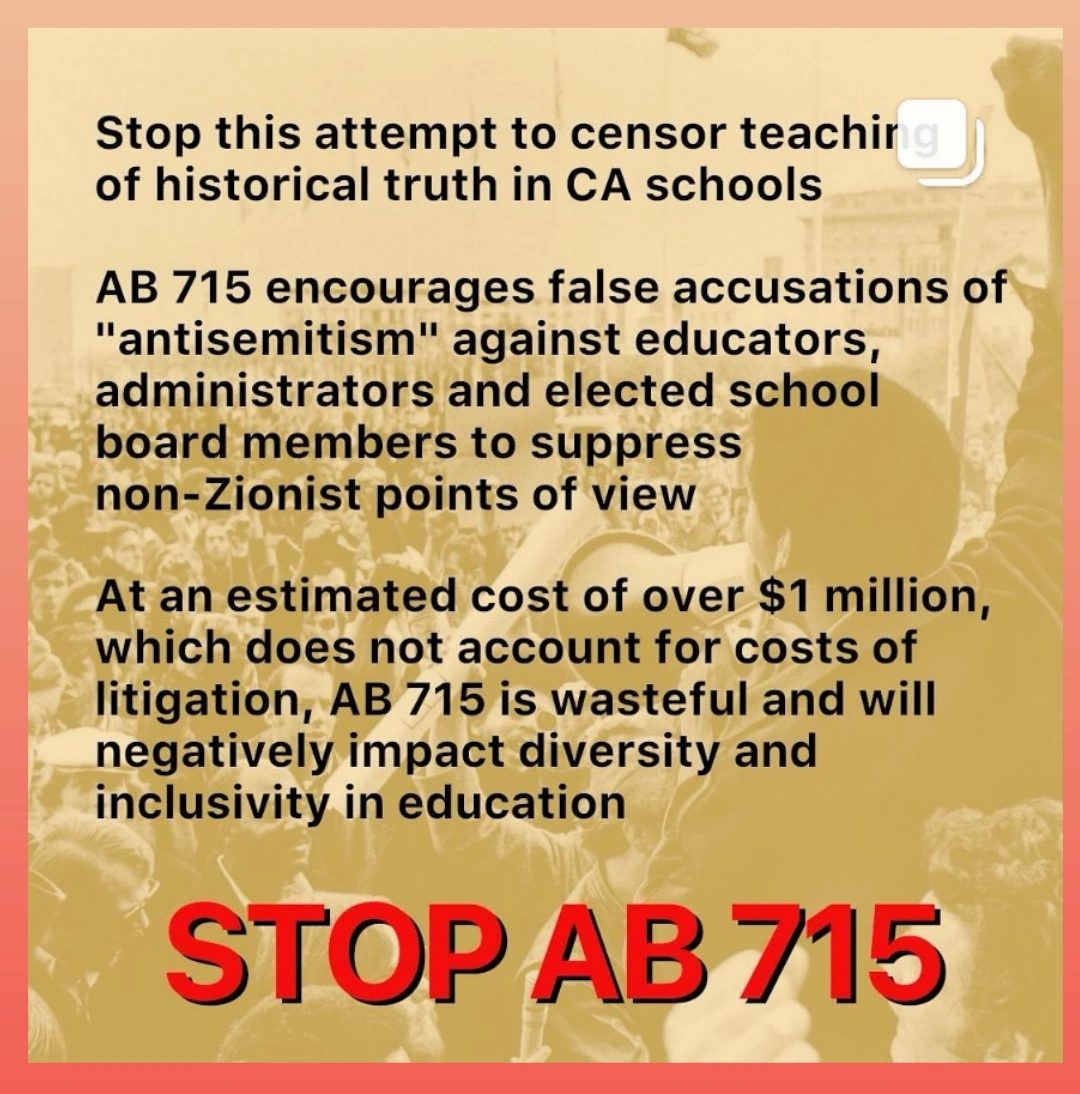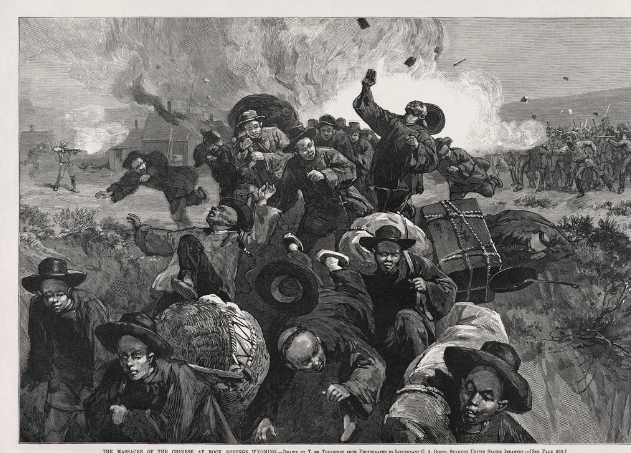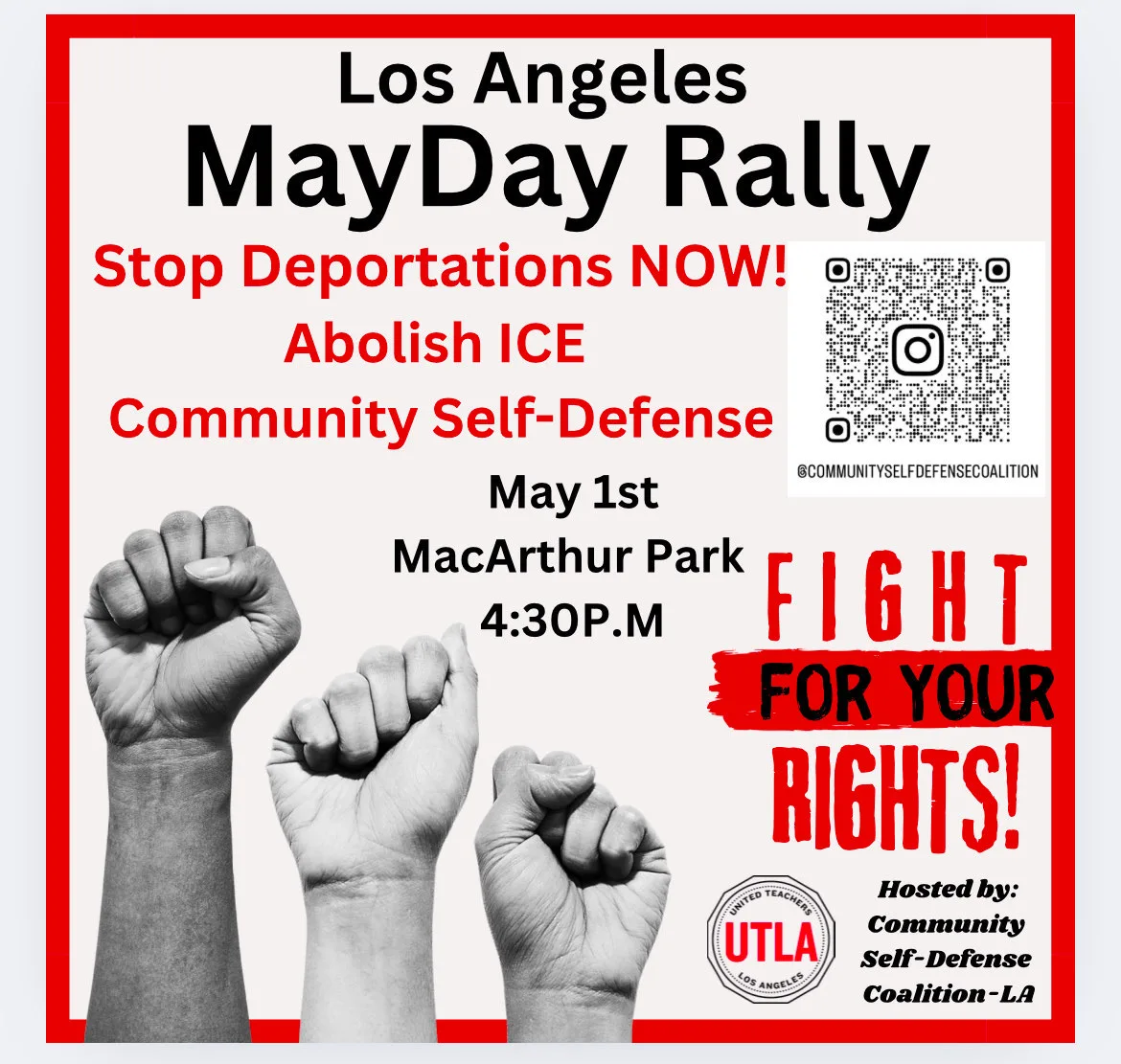
This is a clipping from the Rafu, and I think it’s around 1952, because it mentions the McCarran Walter Act, which passed in 1952.
I recognized Art Takei’s name, because he was one of the founders of APALA, the API labor organization within the AFL-CIO.
Fumi Ishihara, I didn’t recognize, but the internet is amazing, and found this information for me:
During the early 1940s, the Nisei for Wallace group was campaigning for racial
integration, redress, and civil rights. Wallace, running for president on the Progressive
Party ticket, was campaigning against the cold war, the arms buildup, and racial segregation. 3
“I admired Henry Wallace,” Sue said, “because he also advocated, among other policies, a discontinuance of discriminatory hiring practices, and a termination of restrictive covenants in housing, all of which were considered radical ideas in 1947. I went to the first Wallace for President meeting in Los Angeles at Sak [Sakae] and Fumi [Fumiko] Ishihara’s home.” 4
Ishihara, a university-educated member of the Communist Party who had served in the MIS during World War II, is credited with forming the Los Angeles Nisei for Wallace. He had joined the Communist party as a member of the Asian Commission that was part of the Black Caucus. He claimed to have no political ambition, wanting only to be part of a
group or system that would help people. 5
His wife Fumiko Okanishi Ishihara, whose internment in the Poston Camp in the Arizona desert had kindled her activism, was chair of the East Los Angeles Progressives and represented Los Angeles County and the state of California in the national Progressive Party. 6
Sak and Fumi placed an ad in the Rafu Shimpo announcing a meeting of Nisei for Wallace and 20 people showed up, including Sue Kunitomi and Arthur (Art) Takei.
Although Takei knew the Ishiharas, Sue had never met any of them before. Takei had been incarcerated in the camp in Rohwer, Arkansas, and in a postwar interview he recalled mainly being “pissed off ” and plotting how to protest the injustice.
Most of the Japanese American community, however, strongly opposed Progressive political activism.
The Independent Progressive Party had a short lifespan, from 1948 to 1955. It was formed to help push the Henry Wallace campaign.
I think the Progressive Party was seeking a repeal of McCarran Walter because it had anti-Communist rules. Takei and JAs of the Independent Progressive Party supported it because it allowed Asians to be naturalized as citizens. Prior to then, Asians were “aliens ineligible for citizenship.”







Leave a Reply